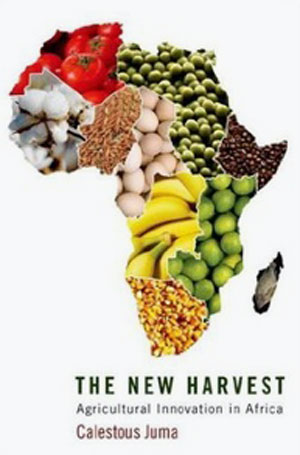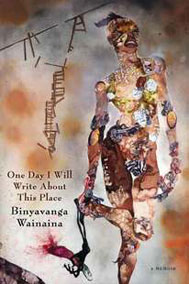|
|
| Time to recognize your asset! |
March 2012, Issue #3 |
|
|
In This Issue
|
| |
 |
| |
 |
|
|
|
Cross-Cultural Communications
American companies and investors interested in engaging in Africa's development must consider one of their strongest asset- the African Diaspora. This newsletter will cover the benefits of considering the Diaspora as cultural brokers, by bringing cultural awareness for greater investment.
Increased return on investment is likely to ensue as a result of enhanced staff cultural awareness and subsequent development of culturally appropriate products and services. Ultimately in today’s competitive market it is vital to understand the economic benefits that cultural awareness can bring to businesses. 'When there was relatively limited contact, and contacts were confined to a small number of individuals, cultural awareness was the preserve of a few. In the current global marketplace some level of cultural awareness is a prerequisite for successes.
Examples of cross-cultural communications: For instance, kissing a business associate is not considered an appropriate business practice in the U.S., but in Paris, one peck on each cheek is an acceptable greeting. And, the handshake that is widely accepted in the U.S. is not recognized in all other cultures.
English is considered the international language of business; it is a mistake to assume that every businessperson speaks good English. In fact, only about half of the 800 million people who speak English learned it as a first language. And, those who speak it as a second language are often more limited than native speakers. (http://www.mindtools.com/CommSkll/Cross-Cultural-communication.htm)
|
|
|
|
Benefits of Cross-Cultural awareness
Within companies there are many facets in which cultural differences manifest. Some key areas which cross-cultural consultants deal with include, but are not exclusive to, the following:
- Cross-Cultural HR: HR covers a wide range of critical business areas that need cross-cultural analysis. Consultants may offer advice on a number of areas including recruitment, relocation, international assignments, staff retention and training programmes.
- Cross-Cultural Team-Building: Cross-cultural consultants will provide tools and methods to promote staff integration, reduce cross-cultural conflicts and build team spirit. This is essentially done through highlighting differences and building on strengths to ensure they are used positively.
- Cross-Cultural Synergy: international mergers, acquisitions and joint-ventures require people from different cultural backgrounds to harmonize in order to succeed. Cross-cultural consultants counsel on group mechanics, communication styles, norms, values and integration processes.
- Cross-Cultural Awareness Training: working with colleagues, customers or clients from different cultural backgrounds, with different religions, values and etiquettes can occasionally lead to problems. Cross-cultural awareness training is usually a generic introduction into a culture, country, region or religion. The aim is to equip the trainee with the adequate knowledge to deal comfortably with people from different cultures, avoiding misunderstandings and mistakes.
- Cross-Cultural Training for Expatriate Relocation: staff that travel overseas need to understand the cultural basics of the host country or region. Knowledge of the country's history, culture, laws, traditions, business practices and social etiquettes all help to minimize the impact of culture shock and hence smooth their transition overseas.
- Cross-Cultural Negotiations: equipped with their knowledge of the two or more cultures that can be meeting around the negotiation table, a cross-cultural consultant advises on areas such as negotiation strategies, styles, planning, closure and etiquette in order to increase the chance of a successful outcome, free from misunderstandings, suspicions and general cross-cultural communication breakdown.
- Cross-Cultural PR Consultancy: brand image, public relations and advertising are all areas companies must be careful of when moving out of the national context. Tastes and values change dramatically from continent to continent. It is crucial to understand whether the brand name, image or advertising campaign is culturally applicable in the target country. Cross-cultural consultants examine words, images, pictures, colours and symbols to ensure they fit well with the target culture.
- Cross-Cultural Language Training: Language training is an area where little investment is made by companies, but where the business advantages are great. Linguistic knowledge goes a long way in bridging cultural gaps and smoothing lines of communication. Cross-cultural consultancies provide language training to business staff, moulding their learning to the business environment in which they work.
|
| Books to Read |
|
The New Harvest: Agricultural Innovation in Africa, by Calestous Juma
 This heartbreaking observation and inspiring declaration, all rolled into one, come from Kenyan-born Calestous Juma, author of the book The New Harvest: Agricultural Innovation in Africa. He is Professor of the Practice of International Development at the Harvard University Kennedy School of Government; Director, Science, Technology, and Globalization Project; and Principal Investigator, Agricultural Innovation in Africa Project. The book was published by Oxford University Press, New York, in January 2011. The New Harvest is a product of the Agricultural Innovation in Africa Project (funded by the Bill and Melinda Gates Foundation), whose researchers found that while globally production offood has grown by 145% in the past 40 years, African food production has fallen by 10% since 1960. Only 4% of the continent’s crop land is irrigated. Fertilizers, pesticides and high-quality seeds are prohibitively expensive and in short supply. About 70% of Africans are involved in agriculture, but almost 250-million people, or a quarter of the continent’s population, are undernourished. The number has risen by 100-million since 1990. This heartbreaking observation and inspiring declaration, all rolled into one, come from Kenyan-born Calestous Juma, author of the book The New Harvest: Agricultural Innovation in Africa. He is Professor of the Practice of International Development at the Harvard University Kennedy School of Government; Director, Science, Technology, and Globalization Project; and Principal Investigator, Agricultural Innovation in Africa Project. The book was published by Oxford University Press, New York, in January 2011. The New Harvest is a product of the Agricultural Innovation in Africa Project (funded by the Bill and Melinda Gates Foundation), whose researchers found that while globally production offood has grown by 145% in the past 40 years, African food production has fallen by 10% since 1960. Only 4% of the continent’s crop land is irrigated. Fertilizers, pesticides and high-quality seeds are prohibitively expensive and in short supply. About 70% of Africans are involved in agriculture, but almost 250-million people, or a quarter of the continent’s population, are undernourished. The number has risen by 100-million since 1990.
|
|
|
|
One Day I Will Write About This Place, by Binyavanga Wainana
 This summary might suggest that the book is simply a single person’s story; but in fact it is in a certain way the story of Kenya too. Binyavanga Wainana creates very clearly the Kenya of the 1970, under Moi, and the slow collapse of various aspects of the country through to the 1990s. He describes returning to Kenya in this period “to find people so far beyond cynicism that they looked back on their cynical days with fondness,” a condition that people in many struggling African countries will recognise. He ends with an attempt to understand the ethnic violence of 2008. This summary might suggest that the book is simply a single person’s story; but in fact it is in a certain way the story of Kenya too. Binyavanga Wainana creates very clearly the Kenya of the 1970, under Moi, and the slow collapse of various aspects of the country through to the 1990s. He describes returning to Kenya in this period “to find people so far beyond cynicism that they looked back on their cynical days with fondness,” a condition that people in many struggling African countries will recognise. He ends with an attempt to understand the ethnic violence of 2008.
|
| |
|
"K. Luthienne said the ancient cultures and religions of the Irish and the Scottish people were similar to the pre-Vedic cultures in the Indian subcontinent because "once upon a time, India, Asia, Africa and Europe were part of the same landmass." The Secret Quest".
http://timesofindia.indiatimes.com/life-style/books/The-Secret-Quest-a-karmic-love-story/articleshow/12067978.cms"
|
|
|
| |
| Unsubscrbe from Newsletter |
  |
| © 2012 Afrolehar |
|